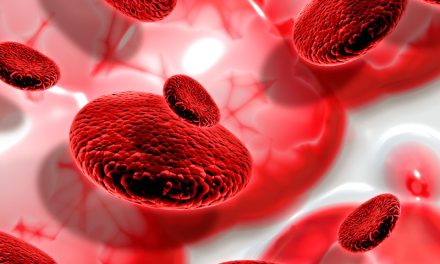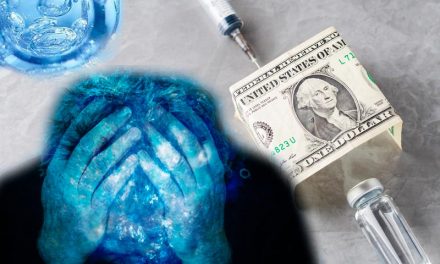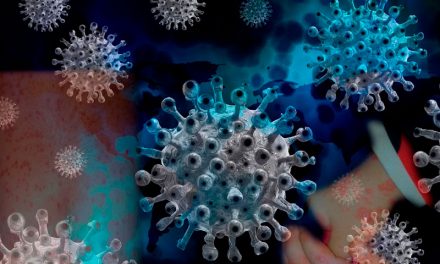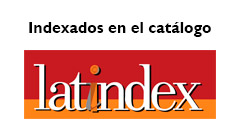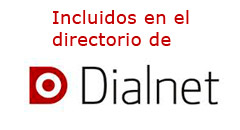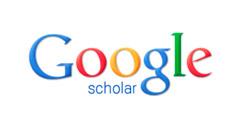Dra. Adriana Schwartz
Director and Editor Ozone Therapy Global Journal President of Aepromo (Spanish Association of Medical Professionals in Ozone Therapy)
Madrid, May 2023
|
Suggestion on how to quote this paper: Schwartz, Adriana. (2023). Editorial. SCIENTIFIC JOURNALS AND THEIR CHALLENGE TO ADVANCE SCIENCE, Ozone Therapy Global Journal. Vol. 13, nº 1, pp. 7-10. |
Since the first edition of our Ozone Therapy Global Journal (previously Revista Española de Ozonoterapia) in 2011, we have emphasized the decisive importance of publishing and disseminating scientific papers on ozone therapy.
We constantly encourage health professionals to publish their experiences with ozone therapy, provided that their articles are duly supported and proven.
On the other hand, we are repeatedly receiving accusations and attacks that ozone therapy is a pseudotherapy and that it does not have scientific endorsement. The only well-founded response that we have and use is the publication of scientific papers. Our journal is proudly leading the way, since since 2011 we have been publishing scientific articles without interruption.
Scientific journals in question
Scientific journals in recent years have been called into question, since they are accused of dangerously mixing the scientific content of the papers with the economic interests of the publishing companies that publish them. We have no objection to publishing companies and researchers obtaining financial benefits from the investigative and editorial effort made, provided that scientific truth prevails.
A brief review of the conflicting interests that are emerging within the journals, serves to appreciate what is behind a scientific publication that unhealthily mixes economic interests and science.
Investigative manipulation
The National Institute on Alcohol Abuse and Alcoholism, one of the 27 member agencies of the National Institutes of Health (NIH) in the United States, hosted a $100 million investigation, sponsored by the five largest alcohol companies, that would go on to recommend a daily alcoholic drink as part of a healthy lifestyle.
Although the research was carried out within a framework of secrecy, different leaks forced the NIH to cancel the study (2018). Although the lead investigator and the N.I.H repeated that they never discussed the study planning with the industry, the evidence found showed “that the institute [National Institute on Alcohol Abuse and Alcoholism] waged a vigorous campaign to court the alcohol industry, paying for scientists to travel to meetings with executives, where they gave talks strongly suggesting that the study’s results would endorse moderate drinking as healthy.”
The above example of investigative manipulation is one among thousands. Results of sponsored research conducted by companies with strong financial interests, and published in medical journals, “consistently favor sponsors’ drugs—largely because negative results are not published, positive results are repeatedly published in slightly different forms, and a positive spin is put on even negative results.”
A report (2018) on cancer research concluded: “Most of the Spanish clinical trial activity is linked to the international pharmaceutical industry, and does not necessarily respond to the capacities and opportunities of the clinical and academic research ecosystem, nor to the epidemiological reality of cancer in Spain.”
Alleged “independent” researchers at the service of pharmaceutical industry
Dr. José Baselga, one of the most prominent breast cancer doctors in the United States, while writing dozens of articles in the New England Journal of Medicine and The Lancet, received millions of dollars from pharmaceutical companies. His financial relationship with the industry continued even as deputy editor-in-chief of the American Association for Cancer Research (AACR) journal Cancer Discovery.
A prolific researcher with more than 850 research reports and reviews and one of the most influential psychiatrists in the US, Dr. Charles B. Nemeroff earned more than $2.8 million in consulting agreements with drug manufacturers between 2000 and 2007. At the same time he was editor in chief of the influential journal Neuropsychopharmacology.
The president of the American Society of Clinical Oncology, Dr. Howard A. “Skip” Burris III, had been paid nearly $8 million by pharmaceutical companies during the period he was writing more than 50 articles. At the same time he was director of the group that published the Journal of Clinical Oncology.
The pharmaceutical industry: Manipulative agent in research and publication
Pharmaceutical companies, when funding research, place their own employees or agents to “design the studies, perform the analysis, write the papers, and decide whether and in what form to publish the results. Sometimes the medical faculty who serve as investigators are little more than hired hands, supplying patients and collecting data according to instructions from the company.” Strong statement from a former editor of the world’s oldest scientific journal.
A public health specialist pointed out that “it is the industry, and not the institutions, who are setting the agenda, who are determining what is investigated and how professionals are updated” and stated “today no one is worrying that there is greater impartiality and independence in the generation of knowledge and its application in practice”.
The economic interests of pharmaceutical companies result in rigged and distorted publications
The Nobel Prize in Chemistry (2009) Thomas Steitz (USA) points out that “many of the big pharmaceutical companies have closed their research on antibiotics because they cure people and what these companies want is a drug that has to be taken all the time. I may sound cynical, but drug companies don’t want people to get cured.”
Canadian epidemiologist Gordon Guyatt, who coined the term evidence-based medicine (EBM) points out that, despite the efforts made, clinical practice guidelines are still published, that are written by experts who are paid a lot of money by the drug companies that make the drugs that are recommended in the guidelines. “There are many cases where the pharmaceutical industry has presented drugs that it manufactures as having great benefits, when in fact the benefit is quite small and the harm is not negligible.”
Guyatt considers that pharmaceutical lobbies “constitute a major threat. Large pharmaceutical companies often organize quality studies, but the problem is how they present the results to doctors and the public. A serious case is when the results are negative and they do not report or disclose this information. Data is only published when it is positive.
“But then there is also the problem of the distortion of the data when presenting it. Negative data are presented as if they were positive – Guyatt affirms – small effects are presented as if they were very large and the benefits are greatly emphasized while downplaying the damages. All of that is a threat.”
Credibility of what is published in scientific journals
Researcher Dr. John Ioannidis one of the pioneers of “metascience”, a discipline that analyzes the work of other scientists and checks if the fundamental rules that define good science are being respected, affirms that “only 5% [of research] follows all the steps correctly ”. He adds “the problem affects “almost every discipline of science”. He denounces that up to 95% [of the papers] can be undisputed fallacies.
Juan Lerma, a researcher at the Institute of Neurosciences in Alicante (Spain), affirms that “too many studies are published too quickly” (…) a general reflection is needed on excessive publication and pressure to publish studies, universities measure results by weight, and that is a mistake”, he emphasizes.
Lluis Montoliu, a researcher at the Spanish National Center for Biotechnology (CNB), points out that part of the blame lies with scientific journals. “We must not forget the complicit role of certain editorial groups, often from top journals, who prefer to publish unexpected, innovative, spectacular results that generate a lot of noise and impact, before ensuring and systematically verifying their reliability.”
What do editors of influential scientific journals say about what their journals publish?
Richard Horton, Editor-in-Chief since 1995 of The Lancet, one of the most prestigious in the world, wrote (2015): “Much of the scientific literature, perhaps half, may simply be untrue. Afflicted by studies with small sample sizes, tiny effects, invalid exploratory analyses, and flagrant conflicts of interest, together with an obsession for pursuing fashionable trends of dubious importance, science has taken a turn towards darkness (…) The apparent endemicity of bad research behaviour is alarming. In their quest for telling a compelling story, scientists too often sculpt data to fit their preferred theory of the world. Or they retrofit hypotheses to fit their data. Journal editors deserve their fair share of criticism too. We aid and abet the worst behaviours. Our acquiescence to the impact factor fuels an unhealthy competition to win a place in a select few journals. Our love of “significance” pollutes the literature with many a statistical fairy-tale. We reject important confirmations.
The former editor (1979-2000) of the influential and oldest medical journal in the world The New England Journal of Medicine, Marcia Angell, already denounced in 2009: “Similar conflicts of interest and biases exist in virtually every field of medicine, particularly those that rely heavily on drugs or devices. It is simply no longer possible to believe much of the clinical research that is published, or to rely on the judgment of trusted physicians or authoritative medical guidelines. I take no pleasure in this conclusion, which I reached slowly and reluctantly over my two decades as an editor of TheNew England Journal of Medicine.”
Our own experience with a scientific journal
In 2020, we Spaniards were in full confinement due to COVID-19, and a dizzying race had begun to find the Holy Grail of the miraculous vaccine against the epidemic. For our part, we had already carried out pioneering and successful research on the use of the Ozonated Saline Solution in 600 COVID patients in a Madrid hospital. The investigative result was published on November 20, 2020.
Clínica Española, a journal from the Dutch publishing house Elsevier, published a letter signed by three physicians stating that “we must be very alert to publications of ‘sensationalist’ therapies (…) and sometimes, of dubious methodology”, citing ozone therapy among them.
We sent a letter to the editor of 300 words, as required by the journal, , rectifying what was stated in relation to ozone therapy. We quote, among others, the main conclusions of the hospital work carried out with 600 patients, which had not yet been published at that time.
The response received (8-20-2020) was the following: “We regret to inform you that given the number of manuscripts received, yours has not obtained sufficient priority to be accepted in RCE [Spanish Scientific Journal].”
The manuscript, a letter to the editor, of only 300 words, which had been submitted to peer review, is not published, when vaccines against COVID were still a vague hope, and what the scientific society was supposedly looking for were viable and safe instruments to treat COVID patients. The journal did not object to the content of the rectifying letter: The capital importance in the search for solutions by the RCE was thrown into the trash can. Supposedly, due to the number of manuscripts received, our letter did not have priority to be published. Despite providing specific evidence and verified data, a scientific journal, which had previously allowed ozone therapy to be described as “sensationalist” and “dubious methodology” without any proof, closed the door to the healthy and much-needed scientific discussion.
The Way Forward by Ozone Therapy Global Journal
AEPROMO (Spanish Association of Medical Professionals in Ozone Therapy), has published the Ozone Therapy Global Journal in an entirely altruistic manner since its first issue in 2011: It can be consulted online completely free of charge; all members of the editorial team work “ad-honorem”. AEPROMO does not receive any economic benefit from the journal, on the contrary, it must finance all the expenses caused by Ozone Therapy Global Journal. Authors are not charged for publishing their research in the journal. We do not have advertising, nor is the magazine sold.
The decisions of the editorial committee are made exclusively for the inherent interest of the article paper by the author and taking into account the evidence presented, and the contributions provided to continue developing the medical use of ozone scientifically, and as a complementary therapy, not an alternative. Always emphasizing that ozone therapy is a medical act.
This post is also available in:  Español (Spanish)
Español (Spanish)





